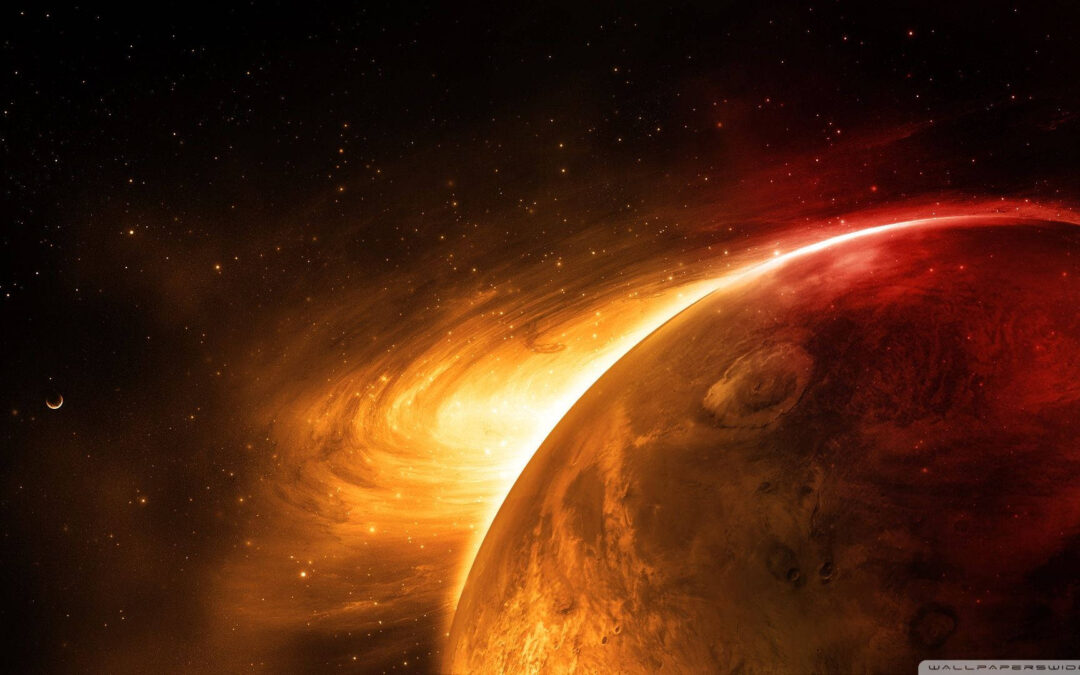The Allure of Mars
Mars has fascinated humanity for centuries. From its striking red color to its potential as a second home for humankind, this mysterious planet has inspired scientists, dreamers, and explorers alike. But why is Mars so special? What makes it worth the effort of exploration and even potential colonization? Let’s take a journey to the Red Planet and uncover its secrets.
A Landscape of Extremes
Mars is a world of breathtaking contrasts. It’s home to Olympus Mons, the tallest volcano in the solar system, towering nearly three times higher than Mount Everest. It also boasts Valles Marineris, a canyon system so massive that it dwarfs the Grand Canyon. The planet’s surface is a mix of rolling dunes, vast deserts, and icy polar caps, all covered in a fine layer of rust-colored dust—hence its signature red hue.
But despite its seemingly barren landscape, Mars was likely once a very different world. Scientists believe that billions of years ago, it had flowing rivers, lakes, and possibly even an ocean. This revelation has fueled one of the biggest questions in space exploration: Could Mars have supported life?
The Search for Life
For decades, the search for life on Mars has driven missions to its surface. While no definitive proof of past or present life has been found, there are tantalizing clues. Ancient river valleys, lake beds, and the discovery of minerals that form in water all suggest that Mars was once much wetter than it is today. Even now, there are signs that liquid water might exist beneath the surface, offering a potential refuge for microbial life.
NASA’s Perseverance rover, which landed in Jezero Crater in 2021, is on a mission to find evidence of ancient microbial life. It’s collecting rock samples that might one day be brought back to Earth for analysis. Meanwhile, the European Space Agency and China also have ambitious plans to further explore Mars’ habitability.
Robots Paving the Way
Humanity’s presence on Mars so far has been robotic. From the twin rovers Spirit and Opportunity that explored the planet’s surface for years to the current work of Curiosity and Perseverance, these machines have been our eyes and hands on Mars. They’ve analyzed soil, searched for organic molecules, and even tested the possibility of creating oxygen from the Martian atmosphere—an essential step for future human missions.
One of the most exciting innovations was Ingenuity, a small helicopter that hitched a ride with Perseverance. It became the first aircraft to achieve powered flight on another planet, proving that controlled aerial exploration is possible in Mars’ thin atmosphere.
When Will Humans Set Foot on Mars?
The dream of putting humans on Mars is no longer just science fiction. Space agencies like NASA and private companies like SpaceX are developing plans to send astronauts to the Red Planet within the next two decades. However, the challenges are immense. Mars is an unforgiving place, with temperatures that can drop below -100°F, a thin atmosphere that offers little protection from radiation, and dust storms that can last for months.
To survive, future Martian settlers will need to harness the planet’s resources. Scientists are working on ways to extract water from the soil, generate oxygen, and even build shelters using 3D-printed materials made from Martian dust. While the road to Mars is long and difficult, the potential rewards are enormous. Establishing a human presence on Mars would be one of the greatest achievements in human history and a stepping stone to exploring even deeper into space.
Mars in Popular Culture
Mars has long been a staple of science fiction, from H.G. Wells’ The War of the Worlds to Andy Weir’s The Martian. It has been depicted as a hostile world filled with aliens, a desolate wasteland waiting to be explored, and a new frontier for human civilization. These stories reflect our collective curiosity about the planet and the possibilities it holds.
Why Mars Matters
Exploring Mars isn’t just about answering scientific questions—it’s about pushing the boundaries of what humanity can achieve. Every rover we land, every discovery we make, and every step we take toward sending humans to Mars brings us closer to a future where we are a multi-planetary species.
So, whether you’re a space enthusiast, a scientist, or just someone who looks up at the night sky with wonder, Mars represents the next great adventure for humankind. And who knows? The first footsteps on its surface might happen in our lifetime.

